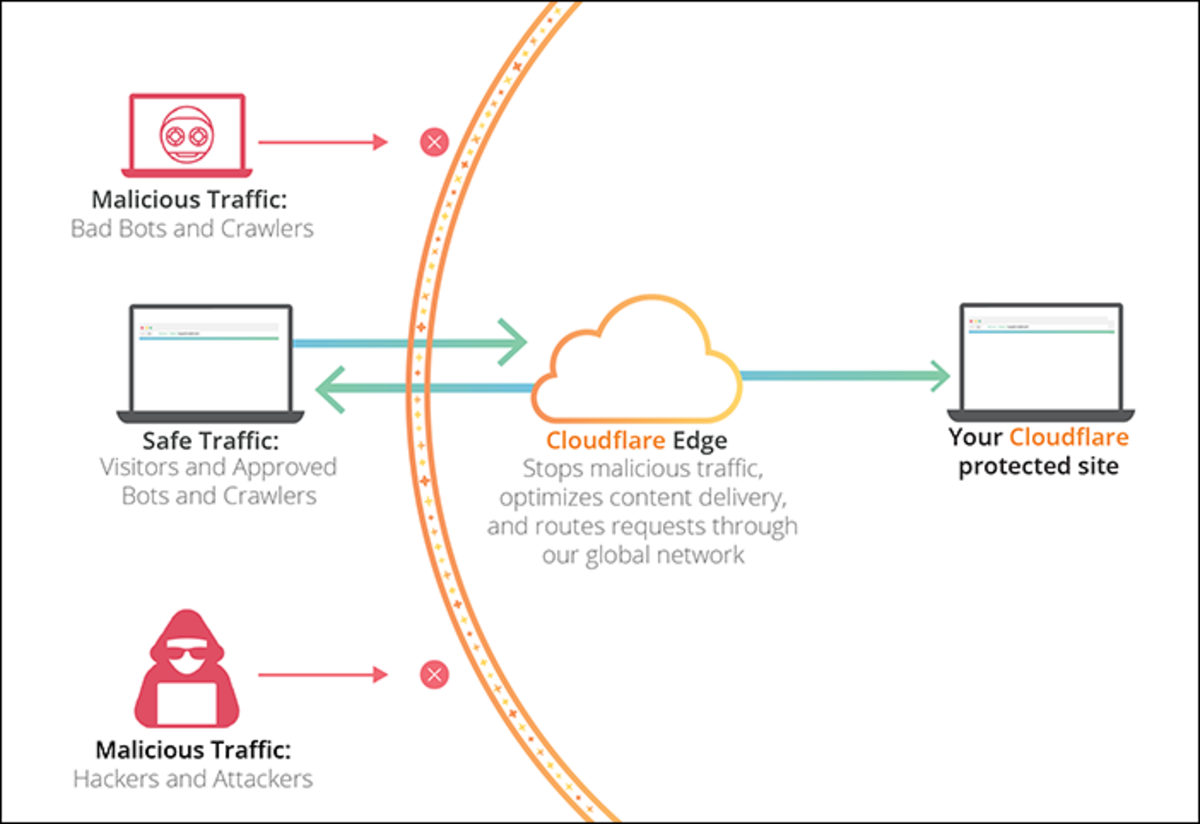Cloudflare provides a measurable improvement in page load speed, as evidenced by tools like WebPageTest and Google Lighthouse. Cloudflare Help Center Despite that, you may notice that your server response time (TTFB, or Time to First Byte) has increased after enabling Cloudflare. This may seem counterintuitive, but is completely normal and not a cause for concern.
Does TTFB Even Matter?
Not according to Cloudflare. While it remains an important metric on certain website speed tests, the server response time has little to do with the actual user experience. In other words, even though your TTFB may be higher with Cloudflare, your website will still load much faster overall. Cloudflare explains this in a blog post aptly titled Stop worrying about Time To First Byte (TTFB). But why does Cloudflare make TTFB worse in the first place? To put it simply, instead of the visitor directly communicating with your web host, they now go through an extra hop, which adds some initial latency.
Unencrypted HTTP Without Cloudflare
This is grossly simplified, but a basic HTTP website without Cloudflare works something along these lines:
Unencrypted HTTP With Cloudflare
Now let’s add Cloudflare: The extra steps do add some overhead. If Cloudflare already has the resource cached on their servers, steps 2 and 3 are skipped, but by default, this only happens with static resources like images, Javascript, and CSS.
Encrypted HTTPS With Cloudflare (Full SSL mode)
If you use TLS (as you should) and enable the Full SSL mode in Cloudflare, the overhead increases further: Cloudflare Help Center Cloudflare has to decrypt your content in order to optimize it, so the Full SSL and Full (Strict) SSL modes add latency. In general, the security is absolutely worth it and the minor increase in server response time shouldn’t be an issue.
Encrypted HTTPS With Cloudflare (Flexible SSL mode)
It is theoretically possible to reduce TTFB by switching to Flexible SSL mode: Cloudflare Help Center While operating in this mode, the connection between origin and Cloudflare is unencrypted, so there is less overhead. Let’s measure the actual effect his setting has.
TTFB in Full SSL Mode
To measure TTFB, I’m using this awesome free tool from KeyCDN that tests your website from ten different locations in the world. First, let’s check the server response with Full SSL mode on Cloudflare: Cloudflare Help Center
TTFB in Flexible SSL Mode
Now let’s switch to Flexible SSL mode, which Cloudflare lets you do with one click, and run the test again: KeyCDN Performance Test The reduction in TTFB is around 30% on average. Does this mean you should switch to Flexible SSL mode? Probably not. KeyCDN Performance Test TTFB is just one metric that doesn’t have much to do with the actual website loading speed. Furthermore, Cloudflare states that Flexible should only be used “as a last resort if you are unable to set up SSL at your origin web server”. An argument could even be made that the Flexible mode misleads your visitors. They see the lock on the address bar and consider their connection to be secure, when it is in fact only partway so. Personally, I wouldn’t use Flexible on anything except a purely static site. But even then there’s a better option.
Better Option: Cache Everything
While Cloudflare only caches resources like images and stylesheets by default, even on the Free plan, you can create a Page Rule to make it cache HTML too. This way Cloudflare will serve the entire webpage from their blazing-fast edge servers without querying your web host at all! (This obviously isn’t an option for parts of the site that need to remain dynamic, e.g. members area or shopping cart).
TTFB With “Cache Everything” Page Rule
Let’s switch back to Full SSL for security but use a “Cache Everything” Page Rule and run the TTFB test again. Hold on to your hat. Cloudflare Dashboard When Cloudflare is allowed to cache the entire webpage, TTFB is up to ten times lower, from across the world, compared to not using Cloudflare at all. A fantastic result, and I get this performance entirely free. KeyCDN Performance Test This article is accurate and true to the best of the author’s knowledge. Content is for informational or entertainment purposes only and does not substitute for personal counsel or professional advice in business, financial, legal, or technical matters.







